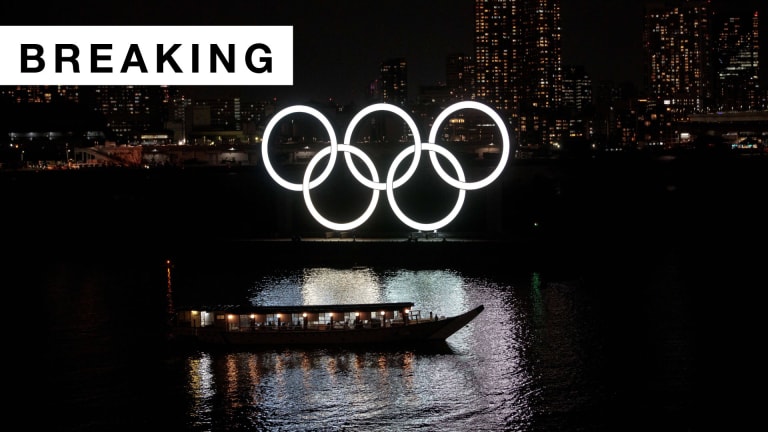On Sunday evening, the Canadian Olympic Committee and Canadian Paralympic Committee announced it would not send its athletes to Tokyo if the events moved forward as planned, making clear the safety of everyone is the top priority during the pandemic.
“This is not solely about athlete health — it is about public health. With COVID-19 and the associated risks, it is not safe for our athletes, and the health and safety of their families and the broader Canadian community for athletes to continue training towards these Games.”
The joint statement advocated for a one-year postponement. Two-time Olympian Vasek Pospisil, who lost in the bronze medal doubles match four years ago in Rio de Janeiro with Daniel Nestor, was in complete agreement with his National Olympic Committee's decision.
“The way things are going right now, sports can wait. Logistically for the safety of everyone involved in the Games, the world has other things to worry about right now, Pospisil told SportsNet Canada. “We need to wait for all this to pass. The fallout of it will be quite significant and dramatic, I assume. It makes sense to focus all of our energy and resources on trying to stop this pandemic.”
Not long after, the Australian Olympic Committee [AOC] followed suit, telling its athletes to start making preparations for the Games to be held in 2021. Two days earlier, the Australian government closed its borders to non-residents and tourists in a travel ban that could last up to six months or longer.
“The IOC had adopted the key principles of putting athlete health first and ensuring it acted in their best interests and the interests of sport. This decision reflects those principles,” the AOC's statement said. “We are now in a position where we can plan with greater certainty.”
Later Monday evening, the United States Olympic & Paralympic Committee echoed the overall sentiment, after more than 1,780 individual athletes (roughly 45% of those contacted) responded to a survey within 38 hours. In its findings, nearly 65% said their training has either been severely impacted or they can’t train at all, and 68% felt the Olympics could not be competed on an equal playing field if it stuck to its original dates.
“Our most important conclusion from this broad athlete response is that even if the current significant health concerns could be alleviated by late summer, the enormous disruptions to the training environment, doping controls and qualification process can’t be overcome in a satisfactory manner,” USOPC Chair Susanne Lyons And CEO Sarah Hirshland said. “To that end, it’s more clear than ever that the path toward postponement is the most promising, and we encourage the IOC to take all needed steps to ensure the Games can be conducted under safe and fair conditions for all competitors.”
Scheduling will be one of the trickiest obstacles for organizers to sort through. A one-year delay also begs a number of questions: will qualifying standards or country quotas be amended for any sports as part of the overhaul? How does this change perspectives for the likes of Roger Federer and Serena Williams, who will turn 40 next August and September? Could the IOC select a window that clashes with one of the Grand Slam tournaments? Is there now an open window for Wimbledon to buy themselves more time to host their 2020 event in late July or early August?
The last time Tokyo hosted the Olympics in 1964, the event was held in mid-October. An Olympics has never been postponed previously. Three were cancelled due to the World Wars, in 1916, 1940 (also due to be held in Tokyo) and 1944.
